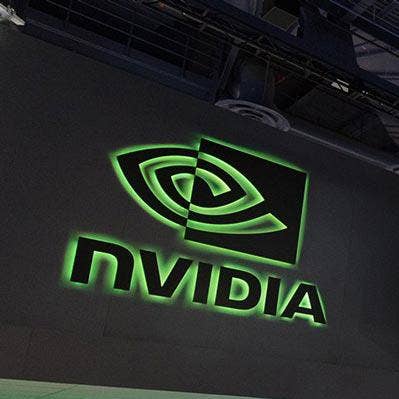Nvidia Closes $7 Billion Mellanox Deal For 'Next-Gen Data Centers'
'With Mellanox, the new Nvidia has end-to-end technologies from AI computing to networking, full-stack offerings from processors to software, and significant scale to advance next-generation data centers,' Nvidia CEO Jensen Huang says of the acquisition.

Nvidia has closed its blockbuster $7 billion acquisition of high-speed interconnect vendor Mellanox Technologies in the chipmaker's bid "to advance next-generation data centers."
The Santa Clara, Calif.-based company, whose many-core GPUs have ascended in high-performance computing and artificial intelligence workloads, announced the closing Monday morning, a little more than a week after China antitrust regulators approved the deal, clearing the last major hurdle.
[Related: How Penguin Computing Is Fighting COVID-19 With Hybrid HPC]
Nvidia said the deal, which will have an immediate positive impact on the company's gross margin, earnings per share and free cash flow, will allow the company's customers to "achieve higher performance, greater utilization of computing resources and lower operating costs."
"The expanding use of AI and data science is reshaping computing and data center architectures," Nvidia founder and CEO Jensen Huang said. "With Mellanox, the new Nvidia has end-to-end technologies from AI computing to networking, full-stack offerings from processors to software, and significant scale to advance next-generation data centers."
Huang said the acquisition will have an impact on a wide range of verticals and applications.
"Our combined expertise, supported by a rich ecosystem of partners, will meet the challenge of surging global demand for consumer internet services, and the application of AI and accelerated data science from cloud to edge to robotics," he added.
This sentiment was shared by Eyal Waldman, founder and CEO of Mellanox.
"As Mellanox steps into the next exciting phase of its journey, we will continue to offer cutting-edge solutions and innovative products to our customers and partners," he said in a statement. "We look forward to bringing Nvidia products and solutions into our markets, and to bringing Mellanox products and solutions into Nvidia’s markets. Together, our technologies will provide leading solutions into compute and storage platforms wherever they are required."
Before the deal was announced on March 11, 2019, multiple companies had sought out or made bids for Mellanox, including Nvidia rival Intel and Microsoft. Mellanox, which provides high-speed interconnects for improved data throughput in data centers, had reportedly put itself up for sale in the fall of 2018 after reaching a settlement with activist firm Starboard Value.
Nvidia partners recently told CRN that they expect the chipmaker to build more products in the future that integrate Mellanox's Ethernet and InfiniBand technologies. The companies have already collaborated on products, including Nvidia's DGX-2 deep learning system, which includes eight Mellanox ConnectX adapters that support both InfiniBand and 100-Gigabit Ethernet connectivity.
Eliot Eshelman, vice president of strategic accounts and HPC initiatives at Plymouth, Mass.-based Microway, said Mellanox's technology can help Nvidia further address throughput bottlenecks, which can dampen the impact of its high-performance GPUs.
"That's been hard for Nvidia," he said in mid-April. "Their product is so fast that you can't get data into it fast enough."
However, the acquisition raises questions in the HPC community about Mellanox's place in the market, according to Eshelman. The company is essentially the "only game in town" for high-speed interconnects now since Intel ditched future development of its Omni-Path interconnect technology and there are only a couple of smaller vendors that are in startup mode.
Nvidia and Mellanox have previously assured partners and customers that Mellanox's products would continue to work with other processor vendors like Intel and AMD, the former of which plans to enter the data center GPU market while the latter is already selling such solutions in the space.
"I don't know the market dynamics that well, but I feel like they would be crazy to walk away from their existing success," Eshelman said. "They've been so successful as an interconnect company, but they can't throw that away."